The unburied dead, small change and the questionability of old men’s wisdom: on the eve of stepping down as executive director of TrustAfrica, an organization he founded some eight years ago, these are among the preoccupations of Akwasi Aidoo. Caroline Hartnell talked to him and to his successor, Tendai Murisa, about how each sees the change and what lies ahead for African foundations. What has been accomplished over the last decade and what comes next?
TrustAfrica set out to do five main things, says Akwasi Aidoo. ‘Of course this is a milestone; it’s a journey, a long-distance journey, but we are on track.’
Getting the programme right
‘The first thing,’ says Aidoo, ‘is having a programme that really resonates on the ground, that can have impact; people can feel and touch it and say yeah, ok, you’re making a contribution.’
Aidoo sees one of TrustAfrica’s principal achievements as grappling with the ‘tough issues’. He cites ‘our work on illicit financial flows, our work on crimes of atrocity, impunity, our work in post-conflict Liberia, which is one of the most difficult places you can imagine working in, and in Zimbabwe, which is a terribly failed state. He notes that ‘these are areas that people often shy away from’; that countries like Zimbabwe, Somalia, Sierra Leone and the DRC ‘are big gaps in the donor landscape’.
These are ‘issues that only an African foundation can deal with’, says Aidoo. While work in these areas has only begun, TrustAfrica is playing a key catalysing role.
A concern for both Aidoo and Murisa is to ensure that decisions about African resources are made by Africans, and that a greater share of those resources remains in African hands. Murisa talks about TrustAfrica’s determination to keep the proceeds from mining and ‘from other extractive industries, such as timber – and even tourism’ in Africa. If that happens, he believes, ‘we will begin to see some shift in terms of economic growth.’
The other main area of economic concern for Murisa, which is again tied in with African ownership of African resources, is agriculture. TrustAfrica’s flagship programme in this area, in partnership with the Bill and Melinda Gates Foundation, is around mobilizing communities to improve smallholder agriculture. ‘The challenge that we have in Africa is that 60–65 per cent of our people are in the rural areas, but agricultural performance is declining in terms of productivity.’ If that figure rises by 20 per cent, ‘there will be the potential for creating jobs around the different value chains that work in agriculture, which will be a huge opportunity for equitable development.’
Showing what an African foundation can look like
The next thing, says Aidoo, ‘was to model what an accountable, transparent, effective African foundation can look like … and I think we are on track.’ Tendai Murisa also highlights this point, noting that TrustAfrica is already part of a process ‘that positions us as a different institution, an institution that is accountable’. Specifically, TrustAfrica has joined the Glasspockets initiative. ‘Last time I checked,’ he says, ‘we were around nine or ten on the Glasspockets index.’
This has wider implications than simply the governance of one foundation. Murisa sees one of the key obstacles to the transformation of Africa is ‘the contradiction that is in Africa itself’. He talks of ‘the nature of the political class, those who are in government, those who are refusing to democratize, those who are refusing to leave power.’ This underpins the perception that ‘Africa cannot be trusted even with its own resources’. This is part of the bigger question of African access to, and responsibility for, African resources.
Attracting African money for African development
A third concern for Aidoo was ensuring that TrustAfrica was not ‘one count away from extinction’. ‘We have succeeded in broadening our donor base,’ he says. ‘We’ve got about 14 major foundations around the world that support our work with substantial amounts of money. We have supporters in the African diaspora, and we are on the cusp of getting some serious African money.’ This is vital because he believes ‘African sources of support are key’.
He describes how TrustAfrica has been ‘cultivating a handful of democratic African governments … countries like Mauritius, Ghana, Senegal, Botswana, South Africa … and getting them to make contributions to TrustAfrica.’ Senegal and Ghana have already made a commitment and he is optimistic that the other three will follow suit. In addition to valuable support for TrustAfrica, he believes that ‘getting this sends a strong message that you can indeed have credible democratic African countries committing to philanthropic pursuits and initiatives’.
TrustAfrica is also working with a number of African airlines to develop a scheme ‘similar to what UNICEF does with British Airways and others, which they call ‘Change for Good’, under which passengers donate their small change while in flight.
Another iron in the fire, so to speak, is the potential support of African high net worth individuals. He describes some of those he has spoken to as ‘very eager to go beyond the usual initial steps of building hospitals, equipping hospitals, giving scholarships’.
Finally, there is the African diaspora, not only outside Africa but within, ‘African professionals who are in the continent but not in their home countries’. He talks of ‘building a base for them to make contributions … to their home country, through Southern Africa Trust and other African foundations’.
Murisa sums up the achievement of creating a solid platform for the organization, paying tribute to Aidoo’s work: ‘We have had a fantastic executive director, who took a huge risk to establish something almost unimaginable ten years ago: an African foundation being established by people who were not high net worth individuals, with a vision bringing together resources from different places, and beginning to energize African giving towards African causes.’
Punching above its weight
The issues to be tackled are big ones. How can a small foundation make a dent in them? TrustAfrica was always going to have to punch above its weight. Aidoo concedes that while ‘we are not a big foundation in terms of resources or endowment, we are there, we have a voice, and the voice is credible and respected’. A lot of this stems from its role ‘as a foundation that can help to interpret the landscape or the philanthropy sector as a whole’, which is something that he has treated as a priority.
‘We cannot do it on our own,’ Murisa emphasizes. ‘We are a small organization but through our agenda-setting convenings and our grantmaking, we see ourselves as building a movement – seeding a movement against illicit financial flows; a movement for mineral ‘beneficiation’ [ensuring that a greater proportion of the value derived from asset exploitation stays in country and benefits local communities]; a movement for better natural resource governance.
‘And we are working in collaboration with others. We are currently working with the Ford Foundation in this area and we look forward to establishing new partnerships with other foundations such as the Open Society Foundation. We work with different NGOs, some in country,some regional. So everything we do is done in partnership with others.’
A strength in regard to this agenda setting and movement building is that TrustAfrica has what Murisa calls ‘an inside/outside position in Africa. Basically we are Africans and we are based in Africa but we have established lasting relationships in the Global North, in the US, in the UK, across the EU and so on.’ TrustAfrica can use these relationships and these platforms to raise these issues ‘and to mobilize other philanthropic actors to begin to have an interest around the big economic injustice issues.’ It can make sure that ‘the conversation is not happening only in Africa but also outside Africa but concerning Africa’.
Handing over the reins
The fifth area where Aidoo is proud of what TrustAfrica has achieved is the staff. Transitions are inevitably tricky moments in an organization’s life, especially when founders are getting out of the driving seat. Aidoo puts great faith in his successors and points to TrustAfrica’s staff as the key to its future achievements. ‘You can’t do what TrustAfrica has set itself to do without a younger, dynamic, new generation. I’m the oldest person here! We’ve got staff in their twenties and early thirties and they’re just brilliant, full of ideas. Just watching them and seeing them drive the organization, I think is quite exciting.’
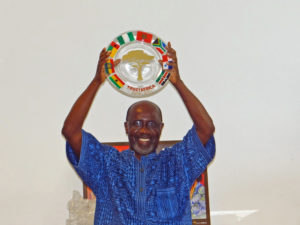 While he is sensible of the trust placed in him and his contemporaries, Murisa does not make light of the difficulty of the transition. ‘The first threat we have to deal with is the separation of the founding director from the institution. Some of our existing partnerships may have been established largely on the basis of relationships with the outgoing executive director. It’s easy to assume that we’ve got the resources we’ve got because we are good. But I also think it has to do with the leadership that we’ve had – our chairperson Gerry Salole and Akwasi Aidoo leading and utilizing relationships that they’ve developed over the years.
While he is sensible of the trust placed in him and his contemporaries, Murisa does not make light of the difficulty of the transition. ‘The first threat we have to deal with is the separation of the founding director from the institution. Some of our existing partnerships may have been established largely on the basis of relationships with the outgoing executive director. It’s easy to assume that we’ve got the resources we’ve got because we are good. But I also think it has to do with the leadership that we’ve had – our chairperson Gerry Salole and Akwasi Aidoo leading and utilizing relationships that they’ve developed over the years.
‘As the younger generation we do not have the same connections with philanthropists and philanthropic institutions in the Global North. So this is one of my first assignments, to develop those relationships.’
Murisa also notes that ‘we are seeing many other foundations coming into the space, many other institutions that are trying to do regranting, etc. So although we are in the non-profit sector we cannot hide away from the competitiveness of the sector in terms of attracting resources and making sure that we are measured with the best.’
Against these things, he believes that it is now time ‘to elevate TrustAfrica as an institution – or as a brand, to use private sector language – that is reliable, so that we can begin to receive resources both on the basis of the work that we’ve done in the past and on the basis of how we’re projecting ourselves into the future.’
The way forward: see what’s on the horizon
What does that future hold? We have already glimpsed some of Tendai Murisa’s preoccupations – the transformation of African economies by securing greater agricultural productivity and a greater share of the proceeds of Africa’s natural resources – but what about his predecessor?
‘The way forward, I think, is for TrustAfrica to be nimble,’ says Akwasi Aidoo. ‘Even though we look at the landscape constantly and try to see what’s on the horizon, things happen sometimes that we could not foretell. Boko Haram in Northern Nigeria was something we hadn’t really expected. The Ebola outbreak in West Africa revealed how weak our public health systems are, how weak our governance is, how little our people trust our governments. It’s something we hadn’t paid much attention to.’
In regard to the Ebola outbreak, he points to a cultural practice that has both aided the spread of the disease and hampered its control: keeping dead bodies for long periods before burying them. ‘In Sierra Leone, in Guinea, in Liberia – really the epicentre of this epidemic – despite what governments and healthcare specialists have said, people have always pushed back and said, “in our culture a dead person is joining the ancestors and our job is to embrace the person, to keep the body for as long as we can.” In Ghana, for example, it’s not unusual for a dead body to be kept for weeks, sometimes months. We need some education and dialogue around these beliefs and practices.’
The belief that bad news never comes from within also needs to be countered, says Aidoo. ‘We saw in Sierra Leone, Guinea and Liberia how health workers who were not from the community were supposed to be behind the Ebola outbreak and they were not easily received.’
Other wider cultural traits that need to be challenged are patriarchy and gerontocracy, prevalent throughout Africa. Most decisions are made by men, and by old men at that – ‘with Ebola it became very clear that the men were really calling the shots’. The women, who are often the care providers in rural areas, saw first hand that different measures were required, but received wisdom tends to prevail.
Challenges of governance and civil society capacity
Murisa highlights two challenges to tackle: the question of governance and the capacity of civil society organizations. He notes the ‘contradiction of Africa’, mentioned above. In trying to raise questions of global governance, ‘it always comes back to us’, he remarks. ‘Our political elites must begin to realize that we ourselves are the solution and we have to do it right: to understand that their custodianship must be for the good of Africa not for the good of themselves and their small circle within.’
The second challenge is the limited capacity of civil society organizations. ‘When we started our work on illicit financial flows,’ he explains, ‘there were very few organizations that were focused on the issue and most of the research was coming from the Global North, especially from the US. So our challenge is to patiently build the capacity of civil society organizations, especially the capacity to carry out policy analysis, technical analysis, the modelling of alternative policy positions. Once we have that core of civil society organizations, policy think-tanks, advocacy organizations and membership organizations that are clear on the policy challenges, it becomes easier to engage government on policy matters.’
The idea of trust
‘Despite the problems that we see,’ Murisa concludes, ‘we are very optimistic that we can still play a catalytic role in terms of influencing change in Africa.’ He talks of the ‘ecosystem’ that TrustAfrica is working to create, through the African Grantmakers Network and other loose alliances. ‘But beyond the philanthropy ecosystem we want to see a broader and stronger ecosystem of civil society organizations. These are the organizations that we have to fund to do this work.’
Running underneath much of what both have said is the idea of trust: the degree to which the foundation has managed to create trust among supporters and allies; the absence of trust among Africans in their political elites; the need for trust if Africa is to deploy its own resources in pursuit of its own development. The name TrustAfrica seems to be appropriate in any number of ways, whether as an assertion, an injunction, a question or an aspiration.
Akwasi Aidoo was the founding executive director of TrustAfrica from 2006 to 2014. He also directed the five-year incubation of TrustAfrica from 2001 to 2006 when it was a Ford Foundation project, known as The Special Initiative for Africa. Email aaidoo@humanityunited.org
Tendai Murisa succeeded him as excutive director on 1 October 2014. Email murisa@trustafrica.org

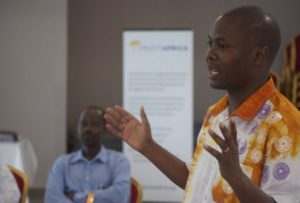
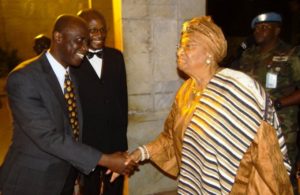


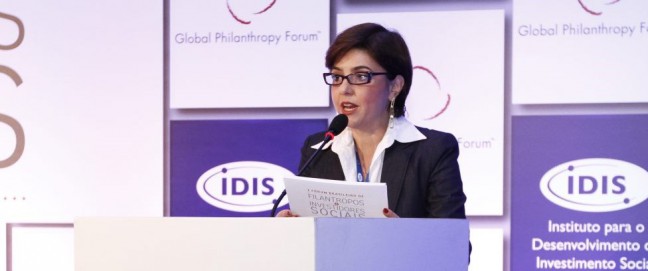
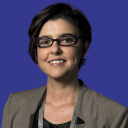
Comments (2)
'..Zimbabwe, which is a terribly failed state. He notes that ‘these are areas that people often shy away from’; ... countries like Zimbabwe, Somalia, Sierra Leone and the DRC ‘are big gaps in the donor landscape’. Granted Zimbabwe has governance issues of a long term leader who refuses to step down but how does that make it a 'terribly failed state'??????? If it so how does it differ from other Africa countries with long term leaders like Cameroon, Angola, how are they not failed states????? And how do you put Zimbabwe in the same category with war torn or recent post war torn countries like Somalia, Sierra Leone and DRC??????????